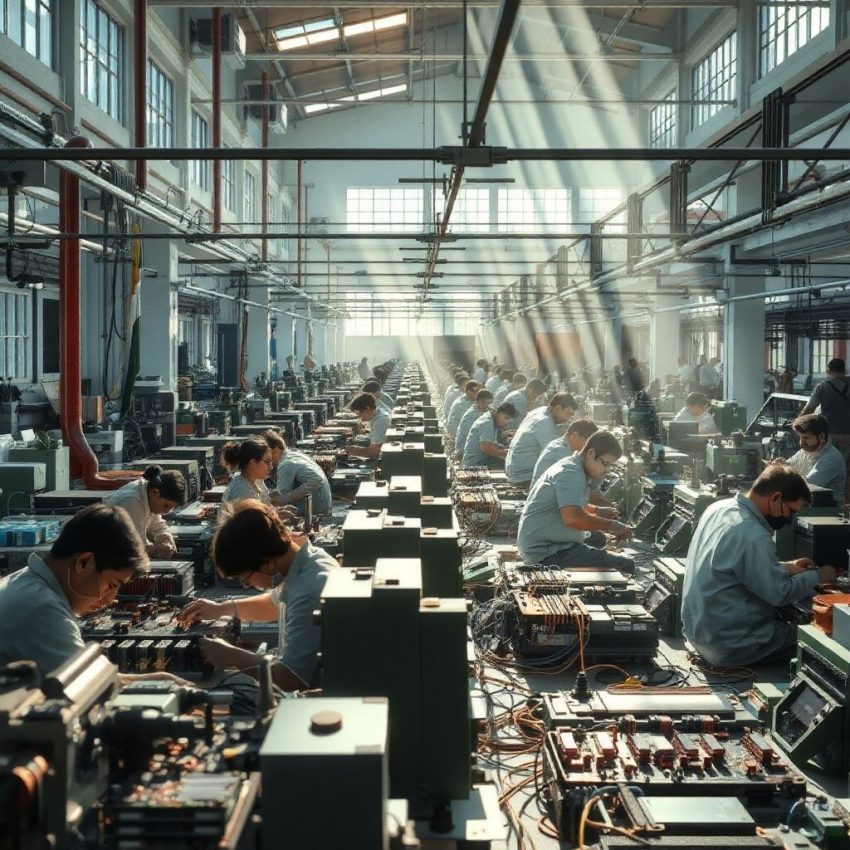Lenovo Joins the Exodus: Another Chinese Manufacturer Flees US Tariffs for India
Lenovo, the world's largest PC maker, is the latest Chinese manufacturer to announce a shift in its production strategy, moving some manufacturing operations from China to India. This move follows a growing trend of companies seeking to mitigate the impact of ongoing US tariffs and diversify their supply chains. While Lenovo hasn't explicitly cited tariffs as the sole reason, the timing and destination strongly suggest they played a significant role.
The trade war between the US and China, initiated several years ago, has resulted in significant tariffs on goods imported from China. These tariffs have increased the cost of doing business for many companies, squeezing profit margins and forcing them to explore alternative manufacturing locations. India, with its large and growing workforce, relatively low labor costs, and burgeoning consumer market, has emerged as a prime destination for these relocating businesses.
Lenovo's decision to shift production to India isn't isolated. We've seen a steady stream of other major electronics manufacturers, including [mention a few examples if known, e.g., smartphone manufacturers, component suppliers], making similar moves. This exodus underscores the long-term impact of the trade war and the potential for a significant restructuring of global supply chains.
Why India?
Several factors contribute to India's attractiveness as a manufacturing hub:
- Lower labor costs: India offers significantly lower labor costs compared to China, making it a more cost-effective location for production.
- Government incentives: The Indian government has actively courted foreign investment in manufacturing through various initiatives like "Make in India," offering tax breaks and other incentives to attract businesses.
- Growing domestic market: India boasts a large and rapidly growing consumer market, providing a readily available customer base for manufactured goods.
- Skilled workforce: India has a large pool of skilled engineers and technicians, essential for high-tech manufacturing.
Implications for the Global Economy:
This shift in manufacturing has significant implications for the global economy:
- Reduced dependence on China: The diversification of manufacturing away from China reduces global reliance on a single country, potentially leading to greater stability and resilience in the face of future disruptions.
- Boost to Indian economy: The influx of manufacturing investment is expected to create jobs and stimulate economic growth in India.
- Reshaping global trade: The changing landscape of manufacturing could lead to new trade partnerships and alliances, altering existing global trade flows.
The Future of Manufacturing:
Lenovo's move to India is a clear indication that the global manufacturing landscape is undergoing a significant transformation. While the long-term effects of this shift remain to be seen, it's clear that companies are increasingly prioritizing diversification and resilience in their supply chains. The ongoing trade tensions and the desire for cost optimization will likely continue to drive this trend, with countries like India poised to benefit significantly. It will be crucial to watch how this dynamic plays out and how it impacts the global economic balance of power in the years to come.
Don’t miss out on this exclusive deal, specially curated for our readers! Discover unbeatable flight + hotel deals
This page includes affiliate links. If you make a qualifying purchase through these links, I may earn a commission at no extra cost to you. For more details, please refer to the disclaimer page. disclaimer page.

